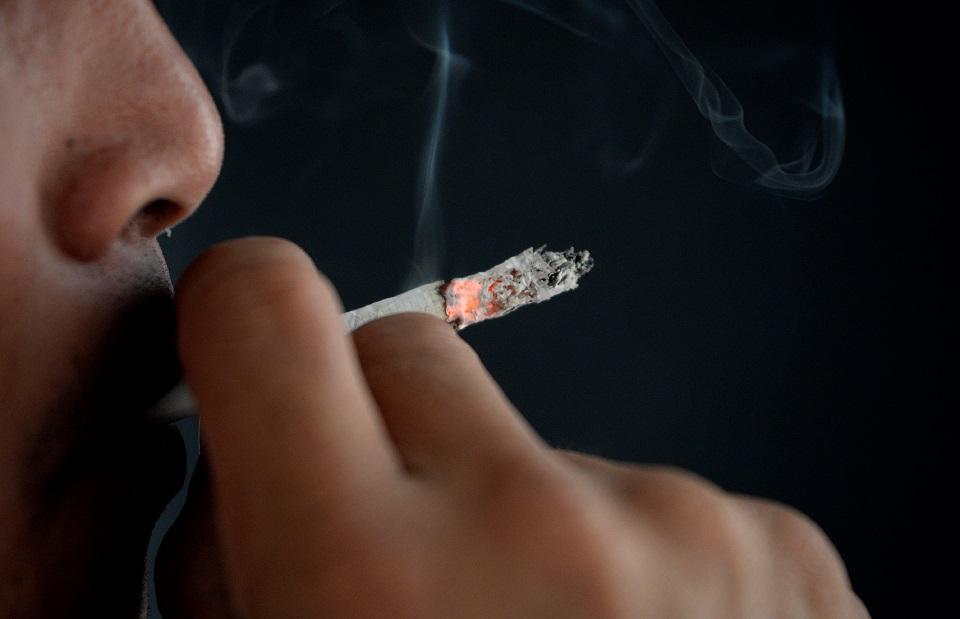The House of Representatives on Wednesday approved the bill lowering the excise tax for cigarettes, tobacco, heated tobacco, and vapor (e-cigarette/vape) products aimed at curbing the decline in tax collection from the goods.
Lawmakers voted via viva voce in favor of House Bill 11360 at 2:09 a.m. on Wednesday, January 29 following extended session hours.
“Tobacco excise tax revenues have been declining despite higher tax rates – so something is up, and we can’t simply ignore it,” Committee on Ways and Means chairperson and Albay Representative Joey Salceda said.
Under the bill, the current excise tax rate of P66.15 per pack of cigarettes will be increased by 2% every even-numbered year effective on January 1, 2026 and 4% every odd-numbered year effective on January 1, 2027 until December 31, 2035.
The same scheme will be applied to the excise tax on tobacco, heated tobacco, and vapor products
The current law regulating tobacco excise tax puts the annual increase at 4%.
After the said period, a review of the rates will be conducted, particularly on its impact on revenue collections, health costs, and prevalence of smoking.
The bill also said that such increases would be implemented provided that as a safeguard against front-loading, or bringing stock into the market just before an increase, as defined by the World Bank Group’s Sin Tax Reform.
The measure stated that the President, upon the recommendation of the Secretary of Finance, may increase the tax rate by up to 5% in case the actual national government deficit of the previous year exceeds the program deficit by an equivalent of 2% percent of the Gross Domestic Product of the previous year.
These rates, however, are lower than those provided under the 2012 Sin Tax law which imposed an excise tax rate of P60 per pack of cigarettes by 2023, an amount that increases by 5% every year starting January 1, 2024.
Illicit cigarettes
Salceda, one of the authors of the bill, said the hike in the excise tax on cigarettes led to the spike in the illicit tobacco trade.
“While it is in the country’s legitimate interest to impose higher taxes to sin products, the increase in the amount of excise taxes imposed on registered cigarette products unintendedly resulted in the proliferation of illicit and counterfeit products due to their low-entry point and affordability,” Salceda explained.
According to the veteran lawmaker, a study of the historical incidence of illicit cigarettes traded in the Philippines showed that the total industry volume of illicit trade in the country more than doubled from 5.3% in 2020 to 13.2% in 2023.
The number of smokers of illicit cigarettes likewise increased to an average of 13.9% in the same year.
“Through the proposed temporary suspension, the price gap of a legitimate cigarette product compared to illicit cigarettes is expected to be smaller which will benefit majority of Filipino smokers who come from lower-socioeconomic brackets with little disposable income for discretionary purchases, such as cigarettes,” Salceda said.
“This is expected to encourage the consumers of illicit cigarettes to shift into purchasing legitimate products,” he added.
Unitary tax for vape, minimum pricing
The proposed bill also imposed an excise tax of P66.15 per milliliter or a fraction thereof excise tax on any vapor product containing any liquid substance, regardless of nicotine content.
These include nicotine-free liquids or any similar product, whether classified as nicotine salt or salt nicotine, or conventional ‘freebase’ or ‘classic’ nicotine.
Under current laws, the excise tax imposed on vapor products only covers those with nicotine salt/salt nicotine and conventional ‘freebase’ or ‘classic’ nicotine, with differing rates.
The bill mandates the Bureau of Internal Revenue to issue a regulation prescribing the floor price or the minimum price of cigarettes based on applicable taxes, reasonable production cost, as well as trade margins for the lowest priced brands registered with the bureau.
The House has one week left to approve the measure on third and final reading before the adjournment of session on February 7 to give way to the campaign period and conduct of the May 2025 polls.
The session will resume on June 2 to 13 before the 19th Congress adjourns sine die.—LDF, GMA Integrated News
This article was originally published by a www.gmanetwork.com . Read the Original article here. .

